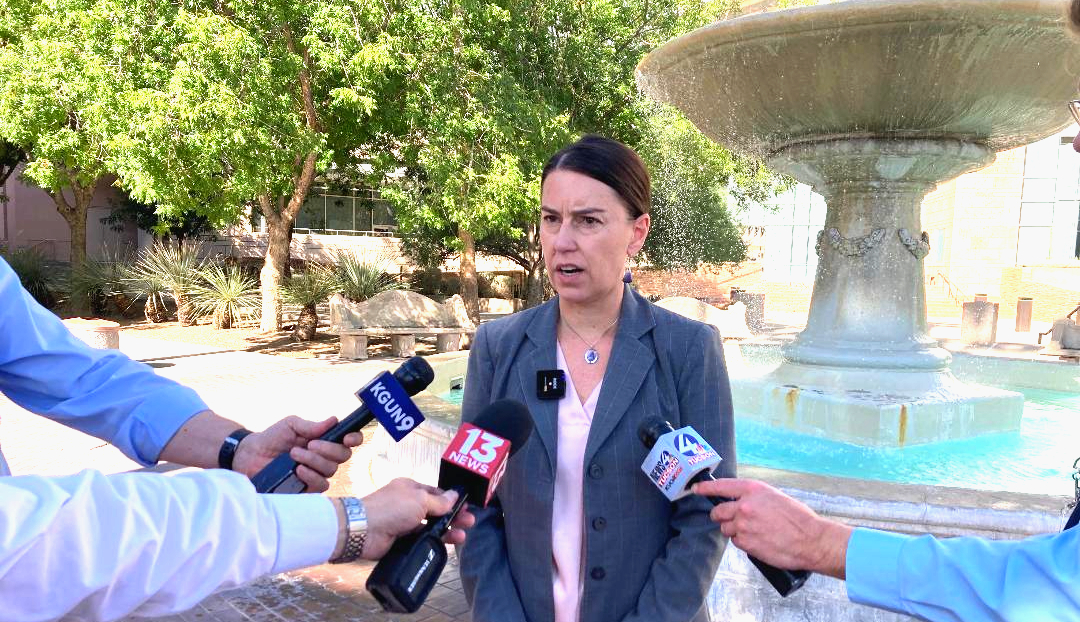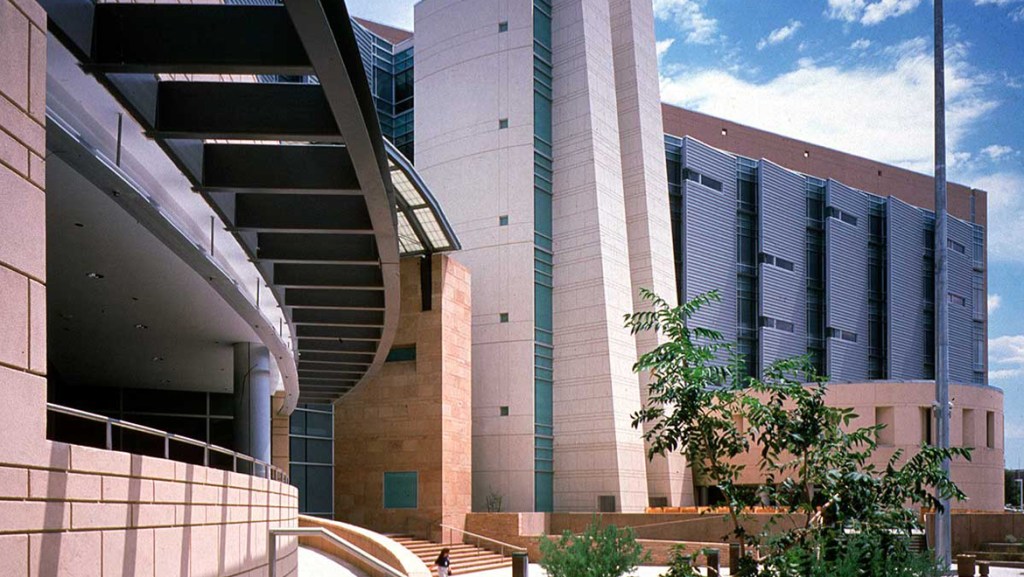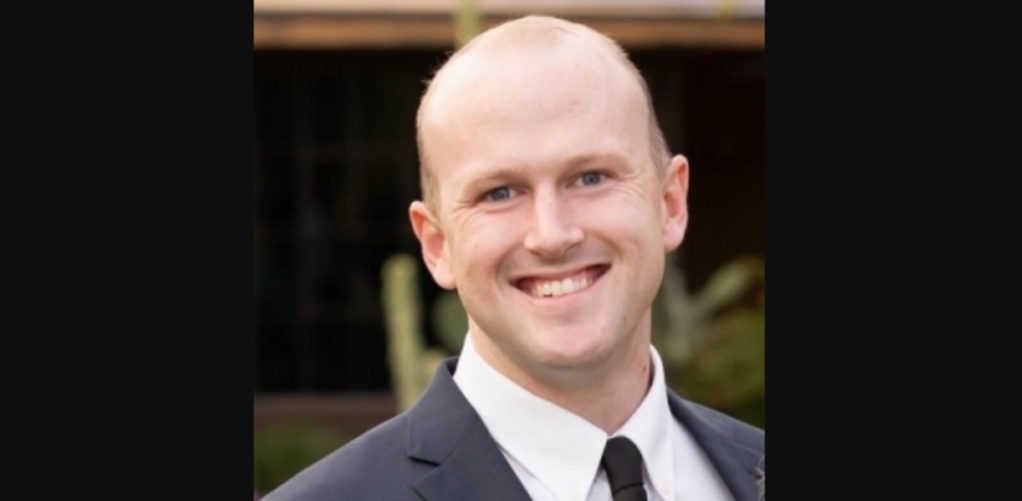
Stephen Lemons

Audio By Carbonatix
Score a win for the home team — in this case, the office of Pima County Attorney Laura Conover.
For months, Conover’s office has been trying to get its mitts on accused carjacker and murderer Julio Cesar Aguirre, who was arrested by Tucson police on June 30 after allegedly committing two home invasions and murdering 70-year-old Tucson resident Ricky Miller Sr. as he sat in his truck. But for months, the federal government — which swooped in to assume custody of Aguirre, who is a Mexican national — has refused to provide him to county prosecutors, effectively stonewalling their case.
That stonewalling may soon end. On Thursday, U.S. District Judge Rosemary Marquez ordered the U.S. Attorney’s Office for the District of Arizona to make Aguirre available to Conover’s office so that the Pima County case against him can proceed.
In her order, Marquez noted “the serious concerns raised” by the County Attorney’s Office, and, by contrast, the U.S. Attorney’s “refusal to offer any justification for not temporarily producing Aguirre for state-court proceedings.”
The judge wrote that she was “commanding the Attorney General, by and through the United States Marshals Service, to produce Aguirre for an initial appearance and arraignment in state court and to coordinate with the Pima County Attorney’s Office to produce Aguirre for witness depositions.” She added that the Marshals Service may do the initial appearance and arraignment remotely, if necessary. And the depositions could take place in the federal court.
The 42-year-old Aguirre, an ex-convict who has been previously deported, faces dueling indictments from county and federal prosecutors. The first involves murder and several counts of aggravated assault, while the latter involves five counts related to the carjacking, two of which could result in life in prison or the death penalty. According to testimony from an FBI agent on Monday, Agguire is currently in federal custody at the Central Arizona Florence Correctional Complex, run by the private prison colossus CoreCivic.
Two days after Tucson cops arrested Aguirre, FBI agents took the man into custody on a federal warrant at Banner University Medical Center in Tucson, where, according to a police department report, he’d been taken for a wound sustained during his alleged crimes. A triumphant July 3 press release from the office of Timothy Courchaine, the Trump-appointed U.S. Attorney for the District of Arizona, claimed the federal case was part of “Operation Take Back America,” the Trump administration’s effort “to repel the invasion of illegal immigration and achieve the total elimination of cartels and transnational criminal organizations.”
And, apparently, to hog the credit for busts made by local cops.
Since that time, the feds have refused to make Aguirre available to the county attorney’s office for an initial appearance and arraignment in state court, as is normal in such cases. Conover, a Democrat who overwhelmingly won reelection in 2024, decried the feds’ unusual intransigence as “unprecedented,” saying it potentially “gutted” the state’s case against Aguirre. She accused the Trump administration of “exploiting grief and loss like this for political gain.”

General Services Administration
Lawsuit city
On Aug. 15, Conover sued Courchaine, U.S. Attorney General Pam Bondi, Homeland Security Secretary Kristi Noem and other federal officials, seeking Aguirre’s presence — even virtually, if need be — for an initial appearance. Other state court proceedings could take place in the federal courthouse in Tucson, the complaint states, “such that the United States need not relinquish physical custody of Aguirre.”
During a 90-minute hearing before Marquez on Monday, Joshua Moser, the chief criminal deputy for the county attorney’s office, testified that he not only needed Aguirre for an initial appearance and arraignment but also to be present with counsel when victims and witnesses were deposed, so as to “lock in” their testimony for trial. This was especially important, he said, as three victims were in their 70s and in declining health.
Under questioning from William Brammer, a former judge and chief of the county attorney’s appellate division, Moser explained that he and the feds share defendants on “a very regular basis,” and that “99% of the time,” they can work out the necessary arrangements. He testified that the U.S. Attorney’s Office originally agreed to turn Aguirre over to him for an initial appearance, but later reneged.
Moser said that in August, the U.S. Attorney’s Office emailed him, telling him that it was “not in the interests of justice” to turn over Aguirre to the state “for an initial appearance or for any other parallel proceeding in state court.” The email, part of an exhibit in the case, offers a vague explanation that any parallel prosecutions would be “fraught with pitfalls” due to the difference in procedures in federal and state courts.
Moser pointed out that six victims of Aguirre’s crimes were not covered by the federal carjacking indictment, in which Miller was killed. Without Aguirre’s presence, the prosecution could not proceed, and those six victims “will not get any justice in that scenario,” he said. He reaffirmed that Aguirre could appear remotely at the initial appearance and that the U.S. Attorney could be present at the victims’ depositions, which could take place in federal court. Aguirre “never needs to leave U.S. custody,” Moser said.
Judge Marquez sympathized with the county’s request, which she called “reasonable.” She said she had “never seen a case” where one prosecuting entity would not share custody with another jurisdiction. “What’s the harm for him to go get his initial appearance and be arraigned?” she asked the federal government, adding, “This happens all the time.” She even suggested that the county might have a claim to primary jurisdiction over Aguirre, since “they had cuffs on him first.” At one point, Marquez asked Assistant U.S. Attorney Denise Faulk, “Why are we here?”
Faulk told the judge that it was the prerogative of the U.S. Attorney’s Office to decide how to proceed, and she did not have to explain further. “The prosecutors are making prosecutorial decisions,” Faulk said. Marquez said Faulk had presented no evidence as to how the feds’ case would be negatively impacted. Faulk told her that federal prosecutors didn’t have to and that Marquez did not have the authority to order them to hand over Aguirre.
“Even though the case law says I can,” Marquez shot back, before taking the case under advisement.

The U.S. Attorney for the District of Arizona.
Trump factor
In a press scrum outside the courthouse, reporters asked Conover why the U.S. Attorney’s Office was refusing to cooperate when it had shared defendants with her office in the past.
“Well, look, it’s the Trump administration, right?” she said. “They’ve come in to say that they have full power over the defendant, that not even the judge has any power to say over it. And when the court asked why, they said, ‘We don’t care to share our reasons with you.’”
(Notably, Conover has long opposed the death penalty, instructing her prosecutors to instead seek life without parole for murder cases that might otherwise fit the definition of a capital crime. Federal prosecutors have so far not signaled their intent to seek death for Aguirre.)
Conover said it was important for her office to “take critical testimony” from witnesses in their case, and that this would have already been done if not for the stubbornness of the U.S. Attorney’s Office.
New Times asked if she thought the Trump administration was singling her office out because she was a Democrat and is often referred to as a “progressive prosecutor.”
Conover replied that she could not “speculate what’s in the mind of the newly arrived Trump-appointed U.S. Attorney,” but she said that it was “very different from the very cooperative relationship” that she has with Arizona Attorney General Kris Mayes and all other law enforcement agencies.
“We’re supposed to be working together for public safety, access to justice, and advocating for victims of crime,” she said. “We always have worked together, and I’m committed to continuing to work together.”
New Times reached out to the U.S. Attorney’s Office for comment, but has yet to receive a reply.
This story is part of the Arizona Watchdog Project, a yearlong reporting effort led by New Times and supported by the Trace Foundation, in partnership with Deep South Today.